Basset hounds are a popular breed of dogs known for their short legs, droopy ears, and soulful eyes. They are often considered ideal family pets due to their gentle nature and affectionate personality. However, for people with allergies, owning a basset hound may not be an option. The question arises, are basset hounds hypoallergenic?
Unfortunately, the answer is no. Basset hounds are not hypoallergenic dogs. They do shed their fur and produce dander, which can trigger allergic reactions in sensitive individuals. While some breeds are less likely to cause allergic reactions than others, there is no such thing as a completely hypoallergenic dog. People with allergies should always spend time around a dog before bringing one home to ensure they can tolerate the pet.
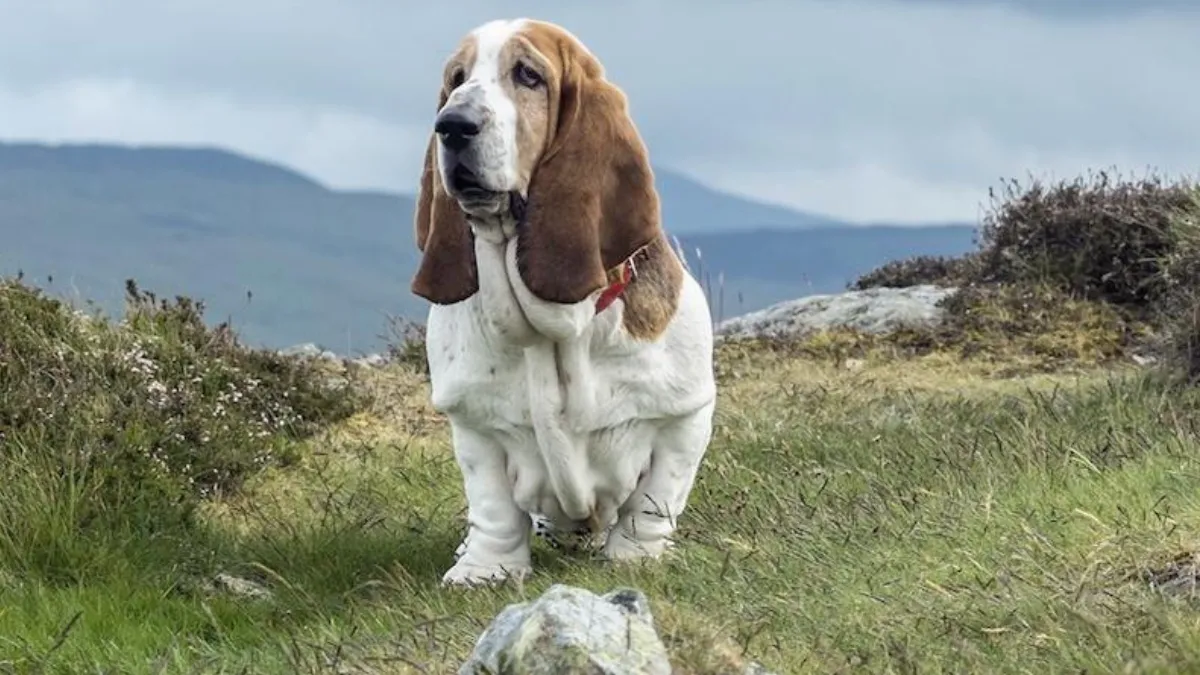
Understanding Hypoallergenic Dog Breeds
Hypoallergenic dogs are breeds that are less likely to cause an allergic reaction in humans. However, it's important to note that no dog breed is 100% allergen-free. The term "hypoallergenic" simply means that these breeds produce fewer allergens than other breeds.
The level of allergens a dog produces is determined by several factors, including the amount of dander, saliva, and urine they produce. These allergens can trigger an allergic reaction in humans, causing symptoms such as sneezing, runny nose, and itchy eyes.
Common Allergens in Dogs
The most common allergen in dogs is a protein called Can f 1, which is found in their dander, saliva, and urine. Other allergens include Can f 2, which is found in their saliva, and Can f 3, which is found in their urine.
Some breeds are known to produce fewer allergens than others. Poodles, Schnauzers, and Portuguese Water Dogs are often considered hypoallergenic breeds. However, it's important to note that even these breeds can still cause an allergic reaction in some people.

In conclusion, while hypoallergenic dog breeds may be less likely to cause an allergic reaction in humans, it's important to understand that no dog breed is completely allergen-free. If you have allergies, it's important to spend time with a dog before bringing them into your home to ensure that you don't react.
Characteristics of Basset Hounds
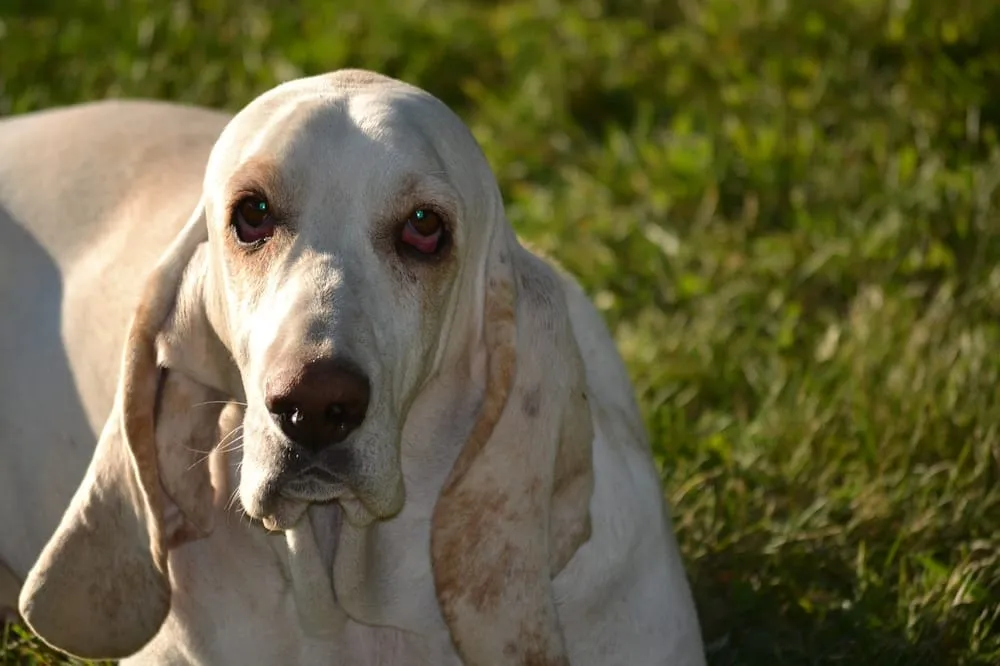
Physical Attributes
Basset Hounds are a medium-sized breed of dog that typically weigh between 40-60 pounds and stand about 12-15 inches tall at the shoulder. They have short legs and a long, droopy face that gives them a distinctive appearance. Their coat can come in a variety of colors including white, black, and brown, and can be either smooth or rough.
One thing to note about Basset Hounds is that they are heavy droolers. This means that they produce a lot of saliva, which can be a concern for some people who are allergic to dogs. However, their fur is generally short and does not shed excessively, which can make them a good choice for people with allergies.
Temperament and Personality
Basset Hounds are known for their friendly and affectionate personalities. They are loyal and good-natured pets who love to be around people. However, they can also be quite independent and stubborn at times, which can make them a challenge to train.
One of the unique things about Basset Hounds is that they were originally bred to hunt. They have a strong sense of smell and can track scents for long distances. This can make them a great choice for people who enjoy outdoor activities such as hiking or hunting.
Overall, Basset Hounds are a low-energy breed that enjoys spending time with their owners. They have a laid-back personality and are generally good with children and other pets. If you are looking for a friendly and affectionate companion, a Basset Hound may be the perfect pet for you.
Allergies and Basset Hounds
Basset Hounds are a popular breed of dog known for their friendly and laid-back personalities. However, for individuals with allergies, owning a Basset Hound may not be the best option.
Shedding and Dander
Basset Hounds are moderate shedders, which means they do shed regularly. Shedding can cause problems for individuals with allergies because it releases dander into the air. Dander is made up of tiny skin particles that can cause allergic reactions in some people.
To reduce the amount of shedding and dander, regular grooming and brushing can be helpful. This can help to remove loose fur and prevent it from spreading throughout the home. Additionally, vacuuming and dusting can help to reduce the amount of dander in the air.
Saliva and Skin Secretions
Basset Hounds, like all dogs, produce saliva and skin secretions that can also cause allergic reactions in some people. These secretions contain proteins that can cause skin rashes and other allergic reactions.
Regular bathing can help to reduce the amount of saliva and skin secretions on a Basset Hound's coat. Additionally, wiping down a Basset Hound's coat with a damp cloth can help to remove excess saliva and skin secretions.
In conclusion, Basset Hounds are not considered hypoallergenic and may not be the best choice for individuals with allergies. However, with proper grooming and cleaning, the amount of shedding, dander, and saliva can be reduced, making it easier for individuals with allergies to coexist with a Basset Hound.
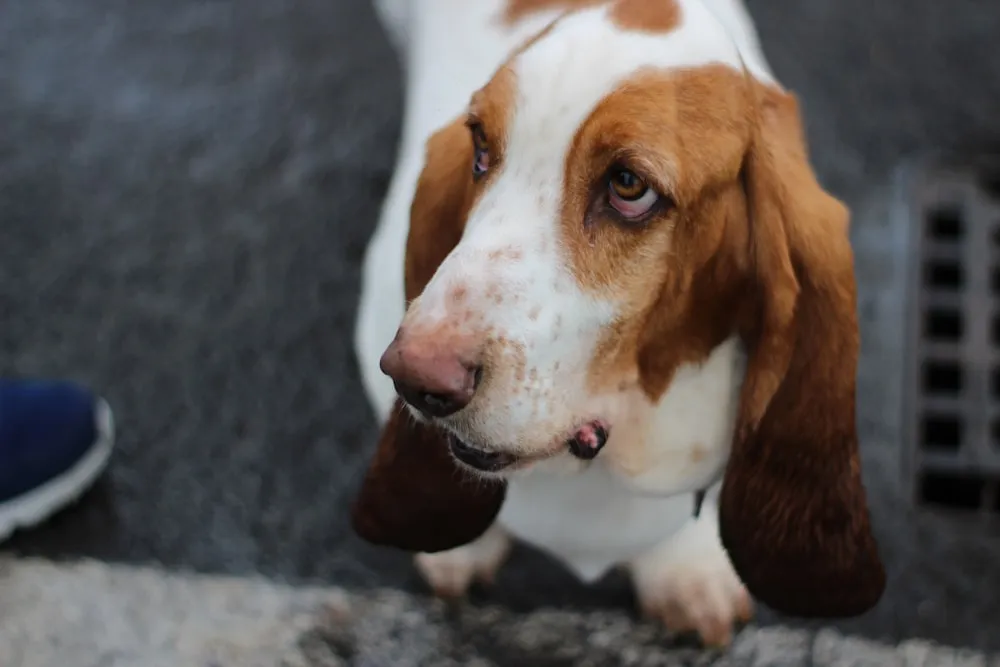
Grooming and Maintenance
Bathing and Cleaning
Basset Hounds have a short, smooth coat that is relatively easy to maintain. They do not require frequent bathing, and over-bathing can strip their coat of natural oils, leading to dry skin. It is recommended to bathe your Basset Hound every 2-3 months, or as needed if they get particularly dirty.
When bathing your Basset Hound, it is important to use a gentle shampoo that is specifically formulated for dogs. Human shampoos can be too harsh and can irritate their skin. After shampooing, be sure to rinse thoroughly to remove all soap residue. It is also important to avoid getting water in their ears, as this can lead to ear infections.
In between baths, you can use baby wipes to clean your Basset Hound's coat and paws. This can help remove dirt and debris and keep them smelling fresh. Additionally, using a rubber brush can help remove loose hair and keep their coat shiny.
Managing Shedding
Basset Hounds are moderate shedders, and their shedding can be managed with regular brushing. It is recommended to brush your Basset Hound at least once a week to remove loose hair and prevent matting. Using a rubber brush can be particularly effective in removing loose hair and massaging their skin.
Vacuuming regularly can also help manage shedding, as it removes loose hair and dander from your home. It is recommended to vacuum at least once a week, or more frequently if you have allergies. Additionally, regularly cleaning your Basset Hound's ears can help prevent infections and reduce the amount of hair they shed.
Overall, with regular grooming and maintenance, Basset Hounds can be a great pet for those with allergies. However, it is important to note that no dog breed is completely hypoallergenic, and individuals with severe allergies should consult with a doctor before getting a pet.
Creating an Allergy-Friendly Environment
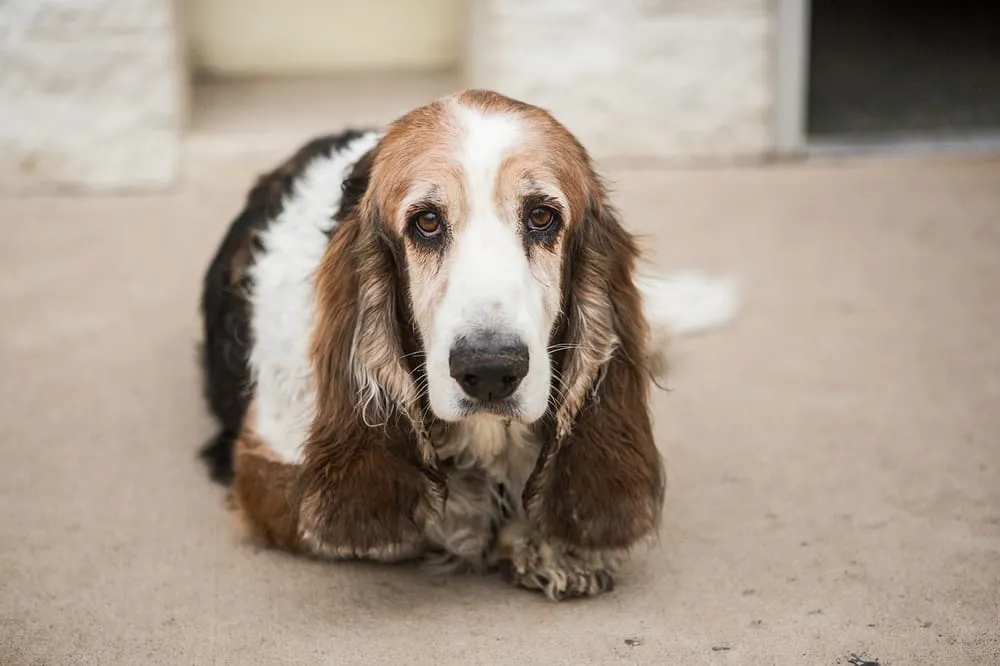
When it comes to owning a basset hound, many people wonder if they are hypoallergenic. Unfortunately, this breed is not hypoallergenic, and their fur can trigger allergic reactions in some people. However, there are steps you can take to create an allergy-friendly environment for both you and your furry friend.
Home Cleaning Strategies
Keeping your home clean is essential for minimizing allergens and creating an allergy-friendly environment. Regular cleaning of surfaces, floors, and furniture can help reduce the number of allergens in your home.
Using a vacuum with a HEPA filter can help capture dust mites, pollen, and other allergens that may be lurking in your carpet or on your furniture. Additionally, using a damp cloth to wipe down surfaces can help trap and remove allergens from your home.
Minimizing Allergens in Living Areas
Living areas such as the bedroom and couch are places where allergens can accumulate. To minimize allergens in these areas, consider using hypoallergenic bedding and pillow covers. These covers can help reduce exposure to dust mites and other allergens that may be present in your bedding.
If possible, consider removing carpeting from your living areas and replacing it with tile or hardwood floors. These types of flooring are easier to clean and can help reduce the number of allergens in your home.
In conclusion, while basset hounds are not hypoallergenic, there are steps you can take to create an allergy-friendly environment for you and your furry friend. By implementing these strategies, you can help reduce exposure to allergens and create a comfortable living space for everyone in your home.
Health Considerations for Basset Hounds
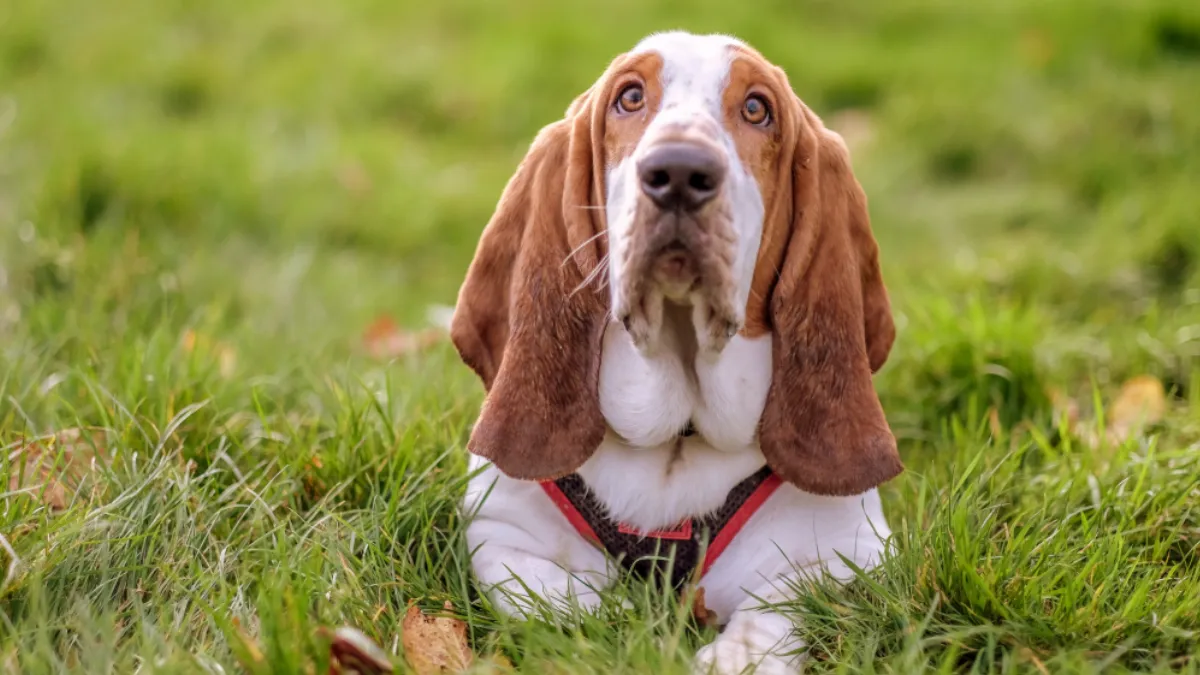
Basset Hounds are generally healthy dogs, but like all breeds, they are prone to certain health conditions. Here are some health considerations to keep in mind when caring for a Basset Hound.
Common Health Issues
One of the most common health issues in Basset Hounds is obesity. These dogs love to eat and can easily become overweight if their diet and exercise are not closely monitored. Bloat, a serious condition where the stomach fills with gas and twists, is also a concern in Basset Hounds. Symptoms of bloat include restlessness, drooling, and vomiting, and it requires immediate veterinary attention.
Another health issue to watch out for in Basset Hounds is ear infections. Their long, droopy ears can trap moisture and debris, leading to infections. Regular ear cleaning and grooming are important to prevent this.
Diet and Nutrition
Basset Hounds tend to overeat, so it's important to monitor their food intake and provide them with a balanced diet. Feeding them high-quality dog food and limiting treats can help prevent obesity. It's also important to make sure they have access to clean water at all times.
Some Basset Hounds may have food allergies or sensitivities, so it's important to pay attention to their reactions to certain foods. If they experience symptoms such as itching, scratching, or digestive issues, it may be necessary to switch to a different type of food.
In summary, Basset Hounds are generally healthy dogs, but they require proper diet, exercise, and grooming to maintain their health. Regular veterinary check-ups and monitoring for common health issues can help catch and treat any problems early on.
Choosing the Right Dog for Allergy Sufferers
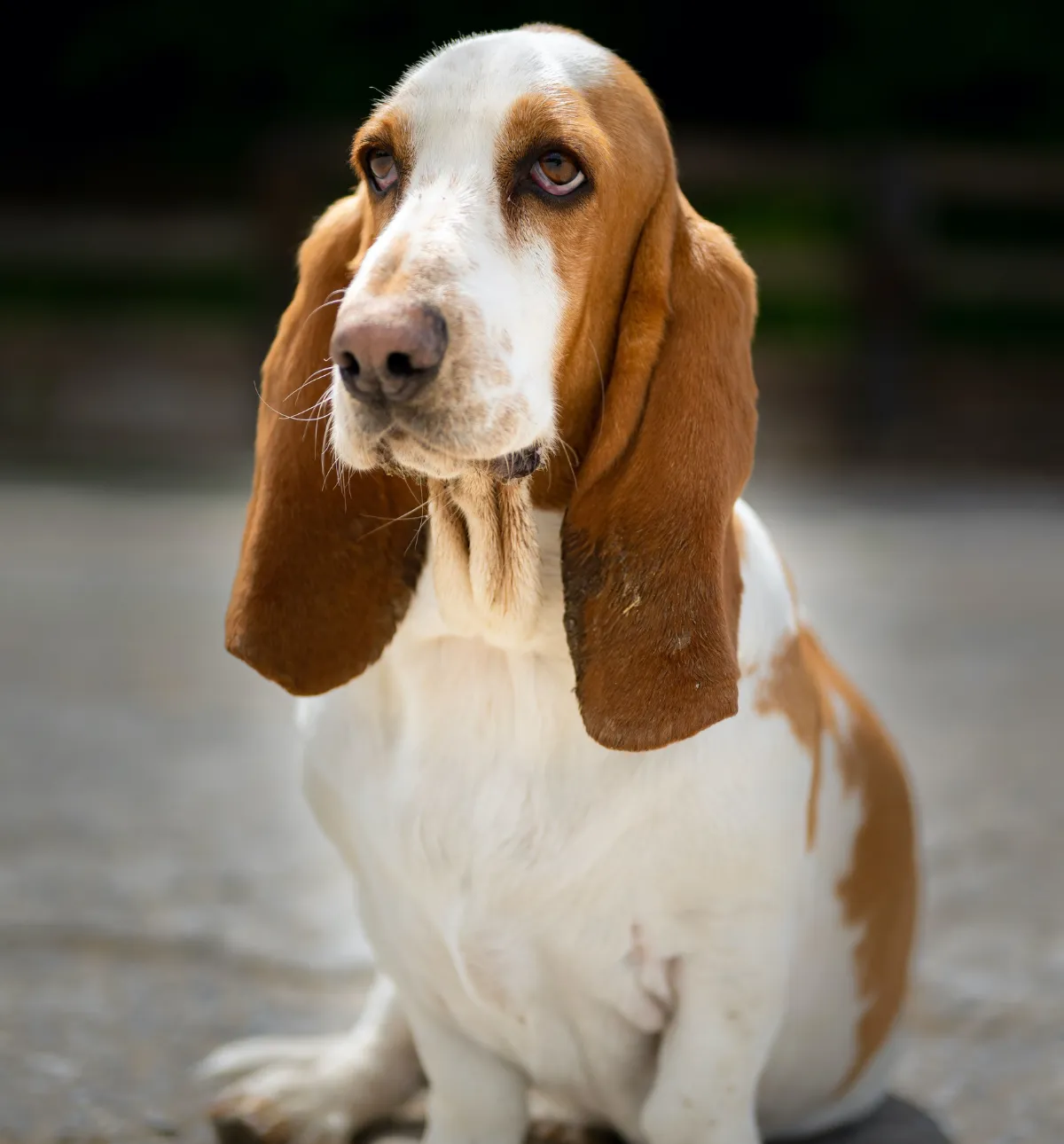
For those who suffer from allergies, choosing the right dog breed can be a difficult decision. While some breeds are known to be hypoallergenic, others can trigger allergies due to their shedding or dander. In this section, we will explore the pros and cons of different dog breeds and help you make an informed decision when choosing a furry friend.
Comparing Basset Hounds to Hypoallergenic Breeds
Basset Hounds are not considered to be hypoallergenic dogs. They have a short coat that sheds moderately and can produce dander. This can make them a poor choice for allergy sufferers. However, it is important to note that not all hypoallergenic dog breeds are created equal. Some breeds, such as Poodles and Schnauzers, have hair instead of fur and shed very little, making them a great choice for those with allergies.
Alternative Dog Breeds for Allergic Owners
If you are looking for a hypoallergenic dog breed, there are several options to consider. The following breeds are known for their low shedding and minimal dander production:
- Poodle
- Bichon Frise
- Schnauzer
- Maltese
- Yorkshire Terrier
It is important to note that while these breeds may be hypoallergenic, they still require regular grooming to keep their coats healthy and free of mats. Additionally, some of these breeds have long hair, which can be a challenge for some owners to maintain.
When choosing a dog breed as an allergy sufferer, it is important to consider the level of shedding and dander production. While Basset Hounds may not be the best choice for those with allergies, several hypoallergenic dog breeds can make great companions. By doing your research and considering your lifestyle and needs, you can find the perfect furry friend for you.

Conclusion:
The inquiry "Are Basset Hounds Hypoallergenic?" concludes definitively: unfortunately, they are not. Despite their charming qualities, Basset Hounds' shedding coat generates allergenic dander, posing challenges for allergy-prone individuals.
For prospective owners with sensitivities, it is crucial to recognize the potential impact of allergens associated with Basset Hounds. While regular grooming practices, including brushing, can help minimize the presence of allergens, complete elimination is not feasible. This presents a conundrum for those desiring the companionship of these lovable dogs while managing allergies.
To make informed decisions, individuals considering Basset Hounds as pets should spend time with the breed beforehand to assess potential allergic reactions. Consulting with an allergist is advisable to gain insights into personal sensitivities and discuss potential mitigation strategies. Additionally, maintaining a clean living environment is essential to reduce exposure to allergens.
Despite the non-hypoallergenic nature of Basset Hounds, their unwavering loyalty, affectionate nature, and distinctive charm make them wonderful companions for households where allergies are not a concern. It underscores the importance of prospective owners being well-informed about the breed's characteristics and potential allergenic factors before committing.
In navigating the intersection of allergies and the desire for canine companionship, responsible ownership practices, including regular grooming and creating a hypoallergenic-friendly home environment, can help mitigate challenges. Ultimately, understanding the nuances surrounding Basset Hounds and allergies enables individuals to make decisions that align with their preferences and ensure a harmonious coexistence with these delightful, droopy-eared dogs.
Frequently Asked Questions (FAQs)
- What dog breeds are the best choice for individuals with allergies and asthma?
- Individuals with allergies and asthma may want to consider dog breeds that are hypoallergenic or have low-shedding coats. Some popular hypoallergenic breeds include poodles, bichon frises, and schnauzers. However, it's important to note that no dog breed is completely hypoallergenic.
- Can certain dog breeds exacerbate allergy and asthma symptoms?
- Yes, certain dog breeds can exacerbate allergy and asthma symptoms. Breeds that shed a lot or have dander can trigger allergic reactions. Some of these breeds include Labrador retrievers, German shepherds, and bulldogs.
- What are the characteristics of hypoallergenic dog breeds?
- Hypoallergenic dog breeds have coats that produce less dander and shed less hair, which can reduce the likelihood of triggering an allergic reaction. They typically have curly or wiry coats that require regular grooming to prevent matting.
- Is there a hypoallergenic breed within the hound group?
- While there is no completely hypoallergenic breed within the hound group, the basset hound is known to produce less dander and shed less hair than other hound breeds. However, individuals with severe allergies may still experience symptoms around basset hounds.
- What symptoms might indicate an allergic reaction to Labrador retrievers?
- Symptoms of an allergic reaction to Labrador retrievers may include sneezing, runny nose, itchy eyes, and skin rashes. In severe cases, individuals may experience difficulty breathing or anaphylaxis.
- Are there any completely hypoallergenic dog breeds?
- No dog breed is completely hypoallergenic. However, some breeds are less likely to trigger allergic reactions due to their coat type and shedding patterns. It's important to note that individuals with allergies may still experience symptoms around these breeds.




